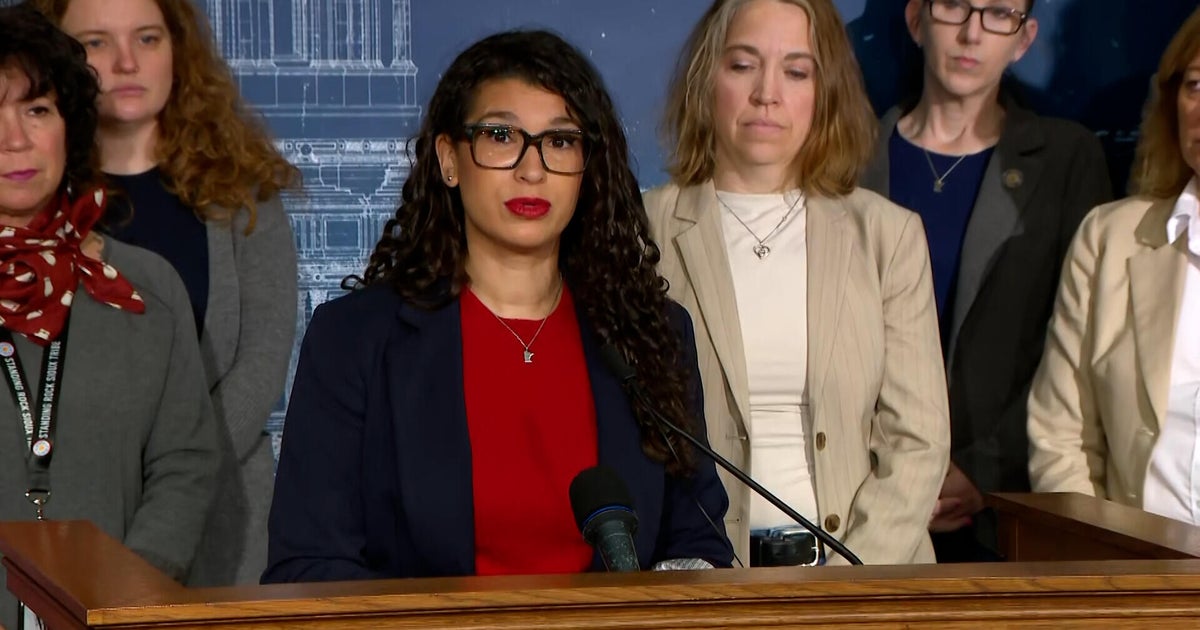Transcript: Scott Gottlieb discusses coronavirus on "Face the Nation," July 19, 2020
The following is a transcript of an interview with former FDA Commissioner Scott Gottlieb by CBS News' Margaret Brennan that aired Sunday, July 19, 2020, on "Face the Nation."
MARGARET BRENNAN: We go now to former FDA commissioner Dr. Scott Gottlieb. He joins us from Washington. Good morning.
DR.GOTTLIEB: Good morning.
MARGARET BRENNAN: So we are now just under a thousand deaths a day from this virus, roughly 70,000 infections per day. Last Sunday, you said the apex would be two to three weeks. Do you stand by that now?
DR. GOTTLIEB: Well, I think the apex in the epidemic states right now, the center of the epidemic, which is California, Texas, Arizona and Florida, could be two to three weeks away. There you are seeing some slowing in the new cases. It's not clear whether or not the new cases are actually slowing or these states are just hitting the upper limit of their testing capacity. Arizona certainly seems to be hitting the upper limit of its testing capacity. The challenge, though, is that as these states start to peak, and I think they're going to have an extended plateau. I don't think this is a sharp up and a sharp down. But as they start to peak, we're seeing other epicenters of epidemic spreads start to emerge. So you have to be very worried right now about Georgia, about Tennessee, about Missouri, about Kentucky. We're seeing record numbers of cases, rising hospitalizations and really a shifting of the center of the epidemic potentially in the United States. And this just portends more trouble for the fall and the winter that we're going to be taking a lot of infection into the fall--
MARGARET BRENNAN: Yeah.
DR. GOTTLIEB: --that we're never going to really be able to come down.
MARGARET BRENNAN: Well, the CDC director said this week if everyone wore a mask, you could get this under control within a matter of weeks. He said four to eight weeks. Is that wishful thinking?
DR. GOTTLIEB: Well, I think it might be wishful thinking that everyone is going to wear a mask. There's a hardened percentage of the population that just feel that the masks are some infringement on their liberty. We've been unable to find some kind of acceptable medium in this country between hapless spread and strict lockdowns. If we can come to a consensus about some reasonable measures that we all agree to take, we could potentially get this under control and keep it under control. Masks are an important first step, but I just don't see enough of the population agreeing to wear masks. If 30 percent of the population won't wear masks any- any time, and then you only have maybe 75 percent compliance among the other portion of the population because nobody is going to do everything all the time, that might not be enough mask-wearing to really get this fully under control.
MARGARET BRENNAN: Testing delays, we're still hearing about them in a first world country. Should you accept testing delays of a week or more?
DR. GOTTLIEB: No, look, we've had plenty of time to get this right. We've had now five months since we first identified a shortcoming in the testing in the United States. What we don't have is excess capacity that we can surge into these epidemic cities. And so when you have epidemics in Texas and California and Florida and the testing companies of big commercial labs like LabCorp and Quest try to prioritize tests in those regions, not only do they fall behind in those regions, but now they're pulling testing out of other regions and you're seeing delays there. So once a test is delayed more than 48 hours, it becomes not very useful for clinical decision making. We're seeing delays of up to six or seven days right now.
MARGARET BRENNAN: Well, that has consequences, obviously, for bringing anyone back into an office, into a school. What do you think is about to happen given what we're seeing with the trend of infection rates among children? Do we know yet how this virus affects young people?
DR. GOTTLIEB: Well, we know that children are less likely to get infected, and when they do get infected, they're less likely to be symptomatic. That seems to be accepted based on the literature. What we aren't sure about is what their propensity is to spread the virus once they do get infected, and particularly when they're symptomatic. They do appear as likely to spread the virus when they develop symptomatic illness. And that might be because they shed as much or because of their behaviors, that a child's more likely introducing it into the home because you're going to hug your child even- even when they're sick. Now, the literature on outcomes in kids is scant. And there was one study, one reliable study out of China that looked at 2,100 kids who developed symptomatic illness and about 5% developed severe disease requiring oxygenation. And about 0.6% percent developed very severe disease, requiring admission to an ICU, so multi-organ failure, acute respiratory distress syndrome and shock. That's the one reliable study. Now, that said, children are far less likely to develop symptomatic illness and this just looked at the percentage of children who did develop symptomatic disease. But what it suggests is that when kids do get sick, they have a propensity to get very sick, albeit in a small proportion relative to adults.
MARGARET BRENNAN: But then we've also seen these syn- syndromes that happen after the virus, the Kawasaki effect I'm thinking of there. Given the infection rates going up among kids, does that mean we will soon see Kawasaki to be more prevalent?
DR. GOTTLIEB: That's right. So multi-system inflammatory syndrome is currently being investigated. It does appear to be a post viral syndrome, some kind of immune related phenomena in children similar to Kawasaki disease. The one good study that came out of the CDC estimated that it occurred about 25 days after the onset of symptoms for kids who were symptomatic. But it also occurred in a lot of kids who had asymptomatic illness, and the median age was about eight years old. And so given the fact that we've seen a spike in infections among kids, we would expect in about two or three weeks we might see a surge in these kinds of cases getting reported. That will be right about the time that we're looking at sending kids back to school. So that could cause a lot of districts to become wary. Remember when these symptoms first emerged, when the syndrome first emerged over the summer, we were- we were just ready to start opening camps and sleepaway camps. And when these cases started to emerge, that caused a lot of camps to make the decision to shut down. So we do have to try to get kids back into school. We need to be mindful that we may see a wave of these post-viral syndromes happening right when we're trying to do that. Finally, we still don't know what the denominator is. So we don't know how many kids have been infected. But this does appear to be a rare consequence.
MARGARET BRENNAN: Just quickly, you heard the former CDC director say the CDC is being undermined. Given what's happening now and the controversy over data collection, do you believe that's what's happening?
DR. GOTTLIEB: Well, look, I think what's happening is there's been long standing frustration by the administration with the CDC. Some of it founded and some of it unfounded. The final straw this week, I'm told by people in administration, was when the CDC told officials that they wouldn't be able to provide age breakdowns on the people who are hospitalized until the end of August or September. So there's frustrations with the CDC's ability to collect and propagate data. Now that said, I think they should have worked to try to reform the CDC rather than pull these functions away from CDC. But I think that's primarily what's going on.
MARGARET BRENNAN: Well, we will continue to watch what happens there and listen to our health officials. Thank you very much, Dr. Scott Gottlieb, for joining us. We'll be back in a moment.



